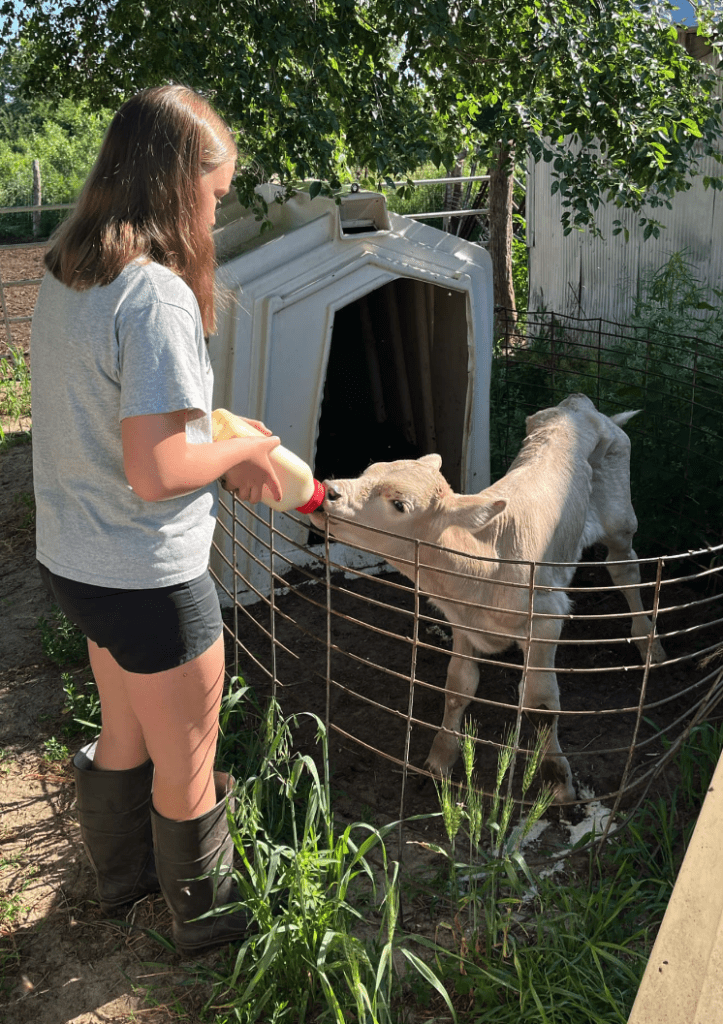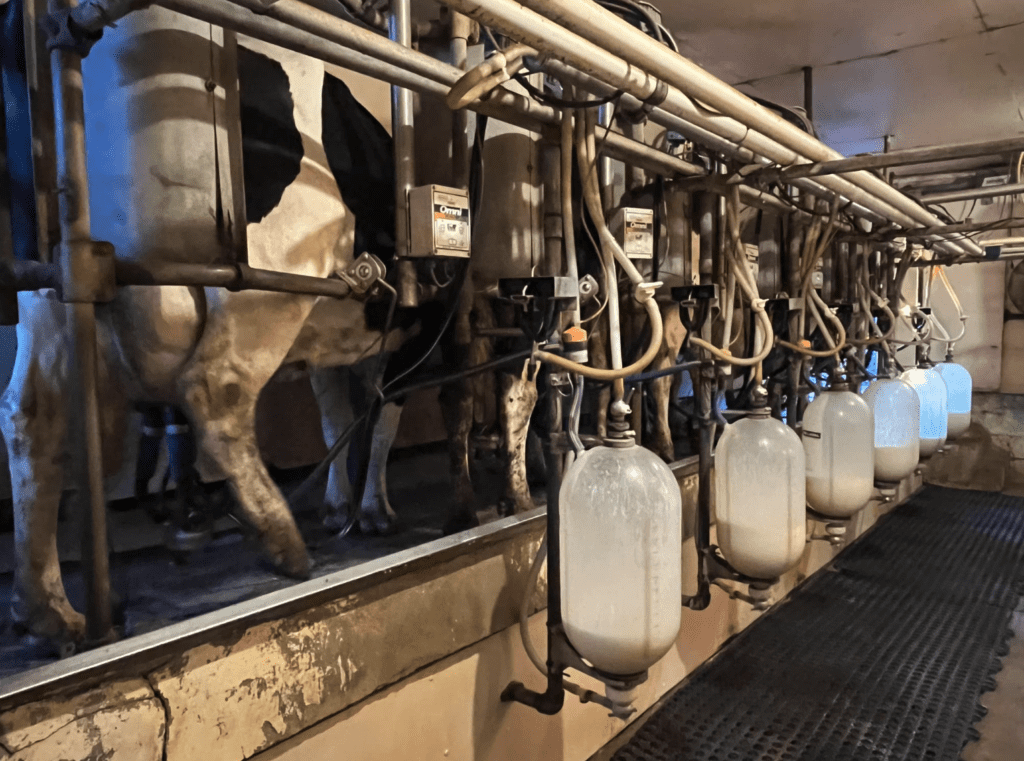Every day, twice a day, the Wohler family milks 100 cows. Loading six at a time into a single-parlor machine – it’s a job that takes about four hours per round. And at any given time, three generations of Wohlers will be out working the dairy farm, said Jess Wohler.
“You really don’t leave,” she said of the business. “We work every day of the year, we are here or someone has to be here all the time to make sure [the cows are] getting milked. There’s a lot that goes on on a dairy farm. The cows are our boss.”
Wohler, who married into the business 19 years ago, has worked hands-on for her entire marriage, but went full-time six years ago. 4J Dairy was founded in the 1950s by her spouse, Luke’s, grandparents and named for its four jersey cows. Since, the farm has switched to Holsteins.
Milking starts at 5 am, and afternoon sessions start about 3 pm she said.

At minimum, the cows produce 60 pounds of milk per day, with a gallon weighing around 8.65 pounds, she said. The farm is paid by every 100 pounds, which doesn’t change even if the price of milk goes up.
Every other day, a truck comes to pick up their supply of milk and takes it to a processing plant by Wichita. Wohler said their milk is combined with other Kansas dairy to create fluid milk – sold in a jug – ice cream, yogurt, and sour cream.
“It’s really a group effort,” she said of managing the farm and its operations. Adding that her three kids: 12, 8, and 6, help during the summers, including bottle feeding the calves. Her in-laws, husband, and brother-in-law share the daily responsibilities from mixing and offering feed, administering meds, inseminating, and anything else that needs to be done.
In addition, they farm land and keep about 200 head of Angus beef cattle.
“It’s definitely a lot, it’s constant work. But we do it because we love cows and we love farming,” she said. “Besides, they’re the ones doing the most work because they’re producing the milk.”
A cow is first milked after it has its first calf, she said of the “first-calf heifer”. On average, their cows have about 10 calves and live to be 13 years of age. Cows have four stomaches, which makes them big eaters, Wohler said. The family chops silage and offers a special corn mix, providing proteins, vitamins, and minerals. The combo is then mixed – similar to Chex Mix, she said.
“We do it that way to make sure they’ve got everything they need. The best way to think about it as a professional athlete. Their sleep, their environment, whether they’re comfortable, they’re overall health – their sport is getting milked.”
Using sexed-sperm – hoping for heifers over bulls – artificial insemination is used. Then, if a pregnancy doesn’t take, a “cleanup bull” is used for mating.
“Around here we like to say cows are pregnant for nine months, nine days, and nine hours,” she said. “Whether or not that’s true, I don’t know – but they’re pregnant for about nine months.”
Two months before giving birth, a cow stops being milked so they can build up calcium. Then the first six times a cow is milked after birth, it’s given directly to their calf. Meanwhile, depending on the time of year, up to 15 calves could be born in a single week.
“That’s got the colostrum and all the things the calf needs to get them to a healthy start so we want to make sure they get that,” she said.

Adding that they keep detailed records of calves being born, to which Mama, and more.
“Everything gets tracked on a dairy farm.” Some cows are named, but all have numbers that allows them to keep track of who is who.
“We have some who have become more like pets,” she said. Adding that her kids take these tame cows for 4-H. “They like to be acknowledged that they’re there and you see them. They will walk on a lead and like to be petted. Just like people, they get grouchy too. Cows can have strong personalities.”
Beyond the Dairy
Wohler also offers tours for students and has earned grants to help educate the public about dairy. That included purchasing equipment and coolers that helped Lincoln School transport food to kids during COVID guidelines, as well as a grant that have provided educational and fun giveaways, like cow hats and ice cream for kids who tour the 4J Dairy Farm. Wohler said other local dairies helped purchase coolers for the Lighthouse for Christ and additional community projects.
She is also involved in various projects, including Midwest Dairy DEAL (dairy experience and ag leadership), an 18-month program for young dairy farmers. Recently accepted, Wohler said it’s a way to network with dairy farmers, tour farms, and learn how to better equip their own operation.
“I’ve gotten to learn a lot of things from other people in the class and how they do things. I hope to also be able to visit their farms and see what they’ve done to make things easier on themselves. It’s a great way to learn.”













